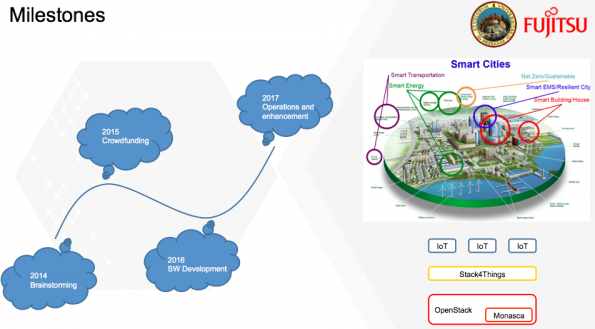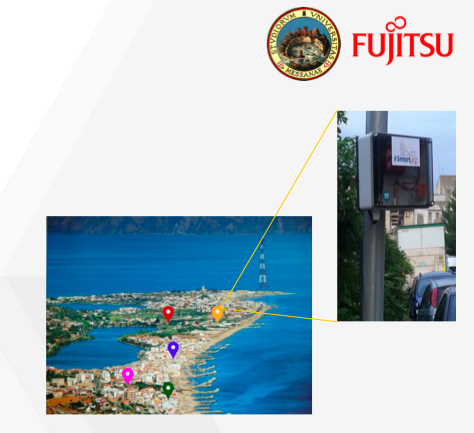Back in 2014, researchers at the University of Messina in Sicily put their heads together to make their city smarter. They started brainstorming — and then successfully crowdfunding — projects that could improve traffic, optimize energy consumption and prevent crime in a metropolitan area of about 650,000 people.
They founded SmartMe.IO, an academic spin-off born out of that research team from the Mobile and Distributed Systems Lab (MDSLab) at the University of Messina, to create vendor-neutral, open source solutions “on a shoestring budget,” according to a recent feature in “Linux Magazine.”
They developed a framework for internet-of-things that they dubbed Stack4Things to collect information from the devices. Stack4Things collects data in real-time and using network virtualization and the framework provides infrastructure-as-a-service-like services from a pool of IoT devices.
To morph Messina into a smart city, an open data platform has been set up through the employment of low-cost microcontroller boards equipped with sensors and actuators and installed on buses, lamp posts, and buildings of local institutions, all over the metro area.

That’s where OpenStack comes in, says Cristiano Bellucci who works for partner Fugitsu. Monasca, the OpenStack monitoring service, analyzes and presents the measured data as well as watching over the health of IoT nodes, too. Stack4Things and Monasca together help to collect, analyze and present the information to users who can decide the best course of action to improve the environment of the city.
So far, the team has devices for urban mobility, e-Tourism, environmental monitoring and device fleet management in place. “The weather is warm, the food is great, the people are friendly, if I can offer some advice for your next holiday, try Messina,” Bellucci says in a talk at the OpenStack Summit Boston. “And if you look around, you’ll see devices like this one all over.”

Next up? The team will be able to offer “complete end-to-end solutions so that future projects don’t have to worry about the infrastructure” and can consume the data on their own.
Catch the full story in Linux Magazine or the video from the Summit Boston session below.
Cover Photo // CC BY NC
- OpenStack Homebrew Club: Meet the sausage cloud - July 31, 2019
- Building a virtuous circle with open infrastructure: Inclusive, global, adaptable - July 30, 2019
- Using Istio’s Mixer for network request caching: What’s next - July 22, 2019

)







